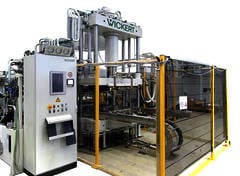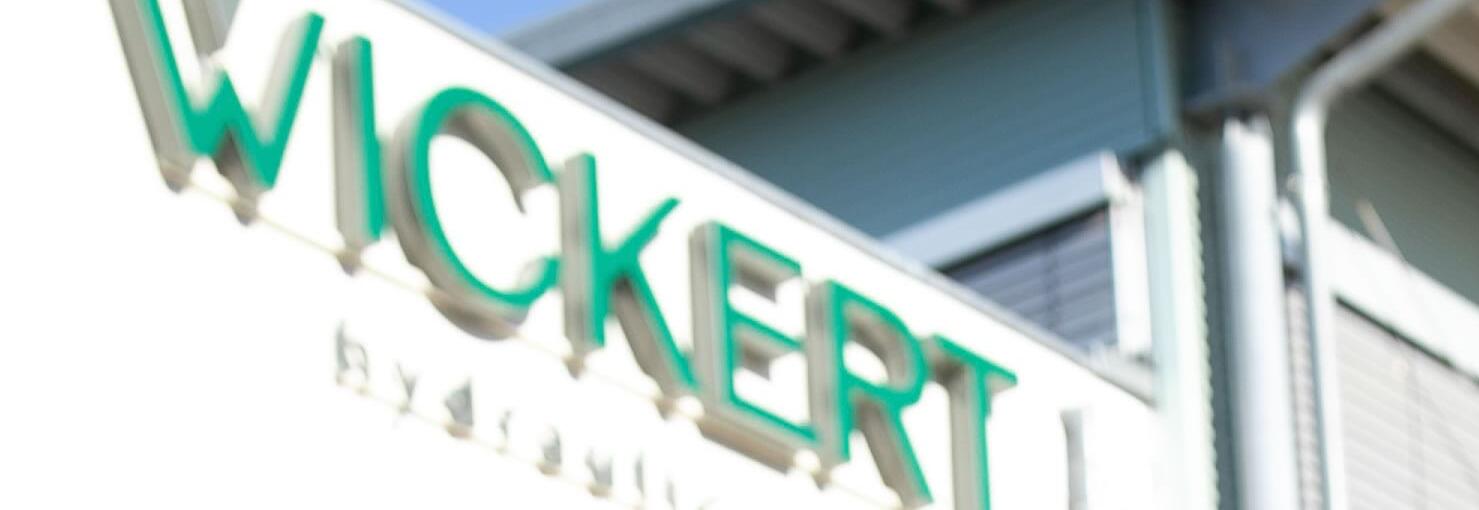
In order to manufacture demanding and sophisticated 3-D composite elements for use in aircraft construction, WICKERT designed a press that guarantees high economic efficiency. The WKP 1700 S not only reduces production waste, it also saves water. WICKERT developed an innovative tensioning frame for this press. The organo sheets can be either inserted directly or mounted as a sandwich between two polyimide high temperature films. This has the advantage that the warm organo sheet sags significantly less. The welcome effect: it is possible to reduce the cutting allowance of the organo sheets, whichreduces production waste up to 30%. To prevent unwanted intervention in the light barrier from leading to an expensive rejected part, the machine is equipped with a 6-mm clearance monitoring. As soon as the mold is only open by 6 mm, no intervention in the light barrier can interrupt the process. The press's cooling system is connected to a highly efficient circulation system in a closed loop design so that no water is wasted.
"Bake" at 450°C
To shape the high-performance thermoplastic, the temperature in the infrared preheater can reach up to 450°C. The press is equipped with 1000 x 800 mm heating/cooling plates, which can be used to implement a one-step heating/cooling process in addition to the thermoforming in the press itself. The heating plates reach a maximum temperature of 400°C.
The WKP 1700 S works with an exactly adjustable (up to 1kN) pressing force of 15 to 1700 kN and is comparatively fast: The conversion time from the end of the preheating to the insertion of the organo sheets and the shaping after reaching 100% of the pressing force is less than four seconds. The sliding table is build in an ergonomically optimal design and allows a very simple and swift mold change.
Complete quality assurance and documentation are ensured. Based on the ,,Industry 4.0’’ philosophy all parameters relevant to quality are recorded and also continually compared to the respective target values. These include the target/actual temperatures of the heating plates, mold and product. Temperature gradients in the heating process and optionally in the cooling process and the complete pressure and path data are also available for quality assurance and component replication. The press plates guarantee maximum deviations of only + 0.05 mm at full load and have a high level of parallelism that ensures "built-in" product quality.
